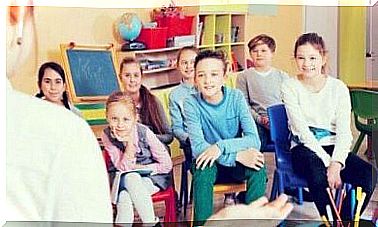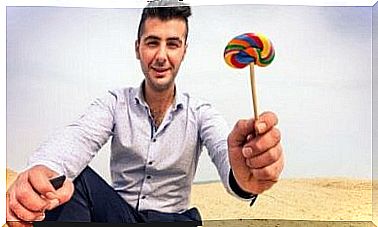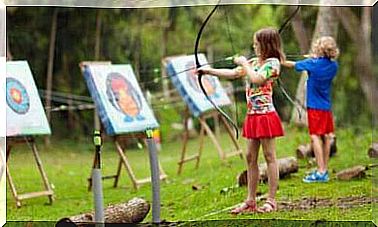Symbolic Thinking In Children: 6 Exercises
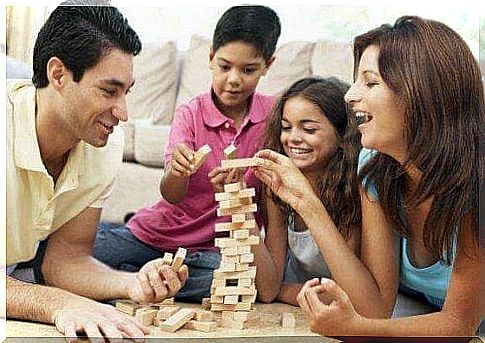
Developing symbolic thinking is essential for children to understand basic abstract concepts. These concepts are acquired through language. Children begin to express themselves using symbolic ideas from about 18 months of age. We know that language is the clearest evidence of mental representations.
What Piaget is pointing out in this quote is that a child’s growth is not only measured in physical characteristics. The most complex processes to monitor are the child’s mental and sensory development.
However, it will be easier to support your children by recognizing the key stages of cognitive development. You will then be able to help them at every stage of their cognitive development.
The basics of symbolic thinking in children
It will be clear that children have developed symbolic thinking when they can represent people, things and situations that are not present in their immediate environment.
In addition, children will conjure up symbols or internal images to represent their reality. This action shows that they perceive reality through abstract concepts.
How to identify symbolic thinking in play and in communication?
When children play with a wooden stick and pretend it is a sword, they demonstrate the ability to make abstract assumptions about real objects. As a result, children think symbolically when they think they are a superhero or a genius doctor.
Now when children use gestures and sounds to communicate and begin to name things, they give meaning to their reality. Later, as children grow older and gain the ability to write and draw, they begin to use signs to delineate the world of concepts.
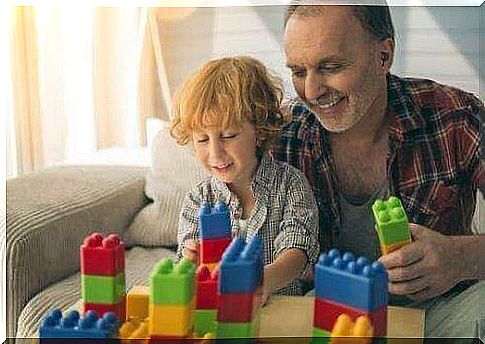
How can you develop symbolic thinking in children?
1. Role Play
Play with your children by suggesting that they are the parents and you are the child. Imagine fun scenarios and start seeing your kids imitate the behavior they want to see in you.
They start to give free rein to their imaginations, creating fantastic stories that will surprise you. Use costumes, masks and objects to make the game more fun.
2. Doing chores
In this kind of game you incorporate the playful assimilation of thinking while helping the child to perform simple household tasks.
For example, think of games in which children can pretend to be cooks and help you prepare a meal. First give them the quantities of ingredients and ask them to count and name them.
This way you can not only help develop their symbolic thinking, but they will also realize that they have to participate in the household chores.
3. Simple Board Games
Snakes and Ladders, Don’t Annoy or Monopoly are games that help children understand numerical concepts. The identification of signs, pictograms and illustrations is also a big step in the construction of symbols.
4. Puzzles and Building Blocks
Making objects by means of blocks or building something from small pieces, and thus the elaboration of mental images also requires mental images.
Moreover, imitating persons who are not present in their immediate reality evokes the abstract concepts of symbolic thinking.
5. I see, I see what you don’t see
This game is ideal for moments of free time with young children, both at home and outdoors. It consists of asking a simple descriptive question or statement, for example, “I see something red.”
Your child must indicate where an object with those characteristics is located. In this way you not only stimulate their perception of objects and backgrounds, but also stimulate their cognitive skills.

6. Stories, Riddles and Guessing Games
Word games are great for kids when it comes to developing symbolic thinking. Words make them think in images, in objects and in stories.
Obviously, when kids let their imaginations run wild, they go to places they create themselves. They explore places that portray and represent their image on reality. In addition, word games can motivate your child to read and write.
Finally, when you start using these simple games in your family’s daily life, you will see big leaps. Your children will develop different dimensions at the same time and their knowledge and communication skills will improve.
Remember that when you work on their language development, it has an effect on the cognitive level and vice versa. Your child’s mind is a wonderful mechanism that responds to stimuli in different ways.


